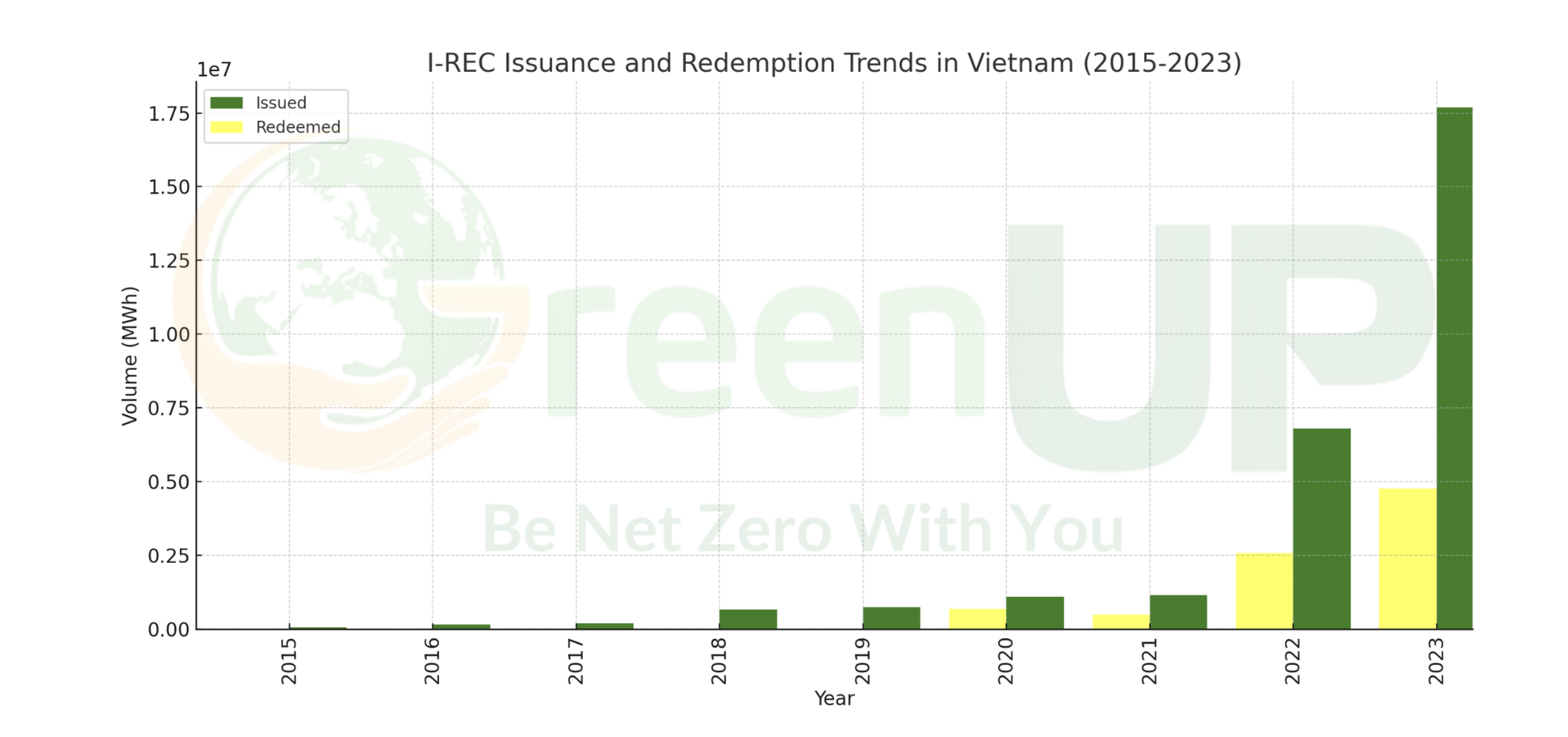Introduction to I-REC Market
The global shift towards renewable energy has prompted many organizations to seek ways to offset their carbon footprints and demonstrate their commitment to sustainability. One effective method is through the purchase of International Renewable Energy Certificates (I-RECs). I-RECs are market-based instruments that certify the generation of one megawatt-hour (MWh) of electricity from renewable energy sources. This article aims to provide comprehensive tips for buyers looking to navigate the I-REC market effectively and make informed purchasing decisions.
1. Assess Your Organizational Needs
Before entering the I-REC market, it’s crucial to understand your organization’s specific needs and goals. This involves several steps:
Energy Consumption
Calculate the total energy consumption of your organization to determine the number of I-RECs required. For example, if your company consumes 10,000 MWh of electricity annually, you would need 10,000 I-RECs to offset this consumption entirely.
Sustainability Targets
Define your sustainability targets and timelines. Are you aiming for carbon neutrality by a specific year, or do you have interim goals for increasing the percentage of renewable energy in your energy mix? Clear targets will help you determine the volume and timing of I-REC purchases.
Budget
Establish a budget for purchasing I-RECs. Consider market prices, which can fluctuate based on supply and demand, and factor in potential future price changes. Having a clear budget will guide your purchasing decisions and help prioritize your investments.

2. Research the I-REC Market
The I-REC market is dynamic, with prices and availability influenced by various factors. Conduct thorough research to make informed decisions:
Supply and Demand
The availability of I-RECs depends on the generation of renewable energy, while demand can be driven by regulatory changes and corporate sustainability initiatives. Keep an eye on market trends and understand how these factors affect prices.
Geographical Considerations
The origin of I-RECs can impact their relevance to your organization’s goals. Some companies prefer I-RECs generated within their region to support local renewable energy projects. Additionally, certain regions may offer incentives or benefits for using locally-sourced I-RECs.
Market Trends
Stay informed about market trends and developments that could affect I-REC prices, such as changes in government policies, technological advancements, or major renewable energy projects coming online. Subscribing to industry newsletters and reviewing market reports can provide valuable insights.

3. Choose Reliable Suppliers
Selecting a reliable supplier is crucial for ensuring the authenticity and quality of the I-RECs you purchase. Consider the following when choosing a supplier:
Reputation
Look for suppliers with a strong track record and positive reviews from other buyers. Engage with industry forums and professional networks to gather feedback and recommendations. For example, GreenUP has established itself as a leader in the I-REC market, particularly in Vietnam. With a robust track record, GreenUP has issued over 10 million I-RECs since 2022. The company’s reputation is built on providing high-quality, certified renewable energy solutions to companies across Europe and the US.
Certification
Ensure the supplier’s I-RECs are certified by reputable bodies, such as the International REC Standard Foundation. Certification provides assurance that the I-RECs meet recognized standards and are tracked accurately.
Transparency
Choose suppliers that provide transparent information about their I-RECs, including details about the generation source, certification process, and any associated environmental benefits. Transparency helps build trust and ensures you are supporting genuine renewable energy projects.
4. Verify I-REC Authenticity
To avoid potential pitfalls, it’s essential to verify the authenticity of the I-RECs you purchase. This can be done by:
Checking Certification
Verify that the I-RECs are certified by an independent and reputable certification body. Certification should include details such as the generation source, date, and the specific amount of energy produced.
Using Tracking Systems
Utilize tracking systems, such as the I-REC Registry, to ensure the I-RECs you purchase are legitimate and have not been double-counted. The I-REC Registry provides a reliable platform for tracking and verifying the authenticity of I-RECs, ensuring that each certificate represents a specific amount of renewable energy.
5. Plan for Long-Term Sustainability
When purchasing I-RECs, consider your organization’s long-term sustainability strategy. This includes:
Future Energy Needs
Anticipate future energy needs and plan I-REC purchases accordingly. As your company grows or changes its energy consumption patterns, adjust your I-REC strategy to match.
Renewable Energy Projects
Consider investing in renewable energy projects to generate your own I-RECs and reduce reliance on external suppliers. This not only helps in securing a stable supply of I-RECs but also demonstrates a stronger commitment to sustainability.
Continuous Improvement
Regularly review and update your sustainability goals and I-REC procurement strategy to align with evolving market conditions and corporate objectives. Conducting periodic sustainability audits can help identify areas for improvement and ensure your strategies remain effective.
6. Evaluate Additional Benefits
Apart from offsetting carbon emissions, I-RECs can offer additional benefits that align with your corporate social responsibility (CSR) and environmental, social, and governance (ESG) goals:
Brand Enhancement
Publicizing your I-REC purchases can enhance your brand’s image as an environmentally responsible company. Many consumers and investors prefer companies that actively support renewable energy.
Employee Engagement
Involve employees in your sustainability initiatives. Educating them about the importance of I-RECs and how the company’s efforts contribute to a sustainable future can boost morale and engagement.
Stakeholder Trust
Transparent and genuine efforts in purchasing I-RECs can build trust with stakeholders, including customers, investors, and regulatory bodies. This can lead to stronger relationships and potential business advantages.
7. Legal and Compliance Considerations
Ensure that your I-REC purchases comply with relevant legal and regulatory requirements:
Regulatory Compliance
Verify that your I-REC purchases meet the regulatory standards of the regions in which you operate. Different jurisdictions may have specific rules regarding the use and reporting of renewable energy certificates.
Contractual Agreements
Carefully review contractual agreements with suppliers to ensure clarity on terms, pricing, and delivery of I-RECs. Contracts should also outline procedures for addressing any discrepancies or issues that may arise.
8. Integration with Other Sustainability Initiatives
Integrate your I-REC strategy with other sustainability initiatives to create a cohesive approach:
Energy Efficiency
Combine I-REC purchases with energy efficiency measures to reduce overall energy consumption and enhance your sustainability efforts. Implementing energy-efficient technologies and practices can further demonstrate your commitment to sustainability.
Carbon Offset Projects
Consider participating in or supporting carbon offset projects that complement your I-REC strategy. This can include reforestation, methane capture, or other environmental projects. Diversifying your sustainability efforts can lead to more significant environmental impact.
Sustainability Reporting
Incorporate I-REC purchases into your sustainability reporting. Clearly communicate your achievements and future goals in sustainability reports, annual reports, and other stakeholder communications. Transparent reporting can enhance your company’s credibility and accountability.
Conclusion
Navigating the I-REC market requires a strategic approach, thorough market research, and a commitment to sustainability. By understanding your organization’s needs, researching the market, choosing reliable suppliers, verifying authenticity, and planning for long-term sustainability, you can make informed decisions in the I-REC market. Additionally, evaluating additional benefits, ensuring legal compliance, and integrating with other sustainability initiatives will enhance your overall strategy.
By following these tips, buyers can effectively navigate the I-REC market, contributing to the global transition towards renewable energy and a more sustainable future. Embracing renewable energy through I-RECs not only helps offset carbon emissions but also strengthens your organization’s commitment to environmental responsibility.
About GreenUP
Pioneering the Green Transition with Expertise and Innovation. With over 10 million I-RECs issued since 2019, we are Vietnam’s leaders in renewable energy certification. Our comprehensive suite of services, positions us uniquely as a one-stop solution for all your green and ESG needs. Experience unparalleled market access, competitive pricing, and strategic partnerships that drive not only cost savings but also significant value to your sustainability goals.
References
- S&P Global Commodity Insights (no date) I-RECs (International Renewable Energy Certificates) Methodology. Available at: https://www.spglobal.com/commodityinsights/PlattsContent/_assets/_files/en/our-methodology/methodology-specifications/i-recs-international-renewable-energy-certificates-methodology.pdf.
- USAID V-LEEP II (2022) REC VEPG Presentation. Available at: https://vepg.vn/wp-content/uploads/2022/12/5.-EN_USAID-V-LEEP-II-REC-VEPG-Presentation_2022.11.25_Formatted.pdf .
- Liang, L. (2024) Renewable energy certificates, defying criticism, take off in Southeast Asia. Eco-Business. [Online] Available at: https://www.eco-business.com/news/renewable-energy-certificates-defying-criticism-take-off-in-southeast-asia/
- Gooding, C. (2023) The Promise of Tracking Renewable Energy Development. Arab Gulf States Institute in Washington. [Online] Available at: https://agsiw.org/the-promise-of-tracking-renewable-energy-development/
- Naik, G. (2021) Problematic corporate purchases of clean energy credits threaten net zero goals. S&P Global. [Online] Available at: https://www.spglobal.com/esg/insights/problematic-corporate-purchases-of-clean-energy-credits-threaten-net-zero-goals
- Upadhyay, N.K. (2023) International Renewable Energy Certificates: The I-REC Standard (Part I). cCarbon. [Online] Available at: https://www.ccarbon.info/article/international-renewable-energy-certificates-the-i-rec-standard-part-i/
- International Tracking Standard Foundation (n.d.) Homepage. Available at: https://www.trackingstandard.org/







